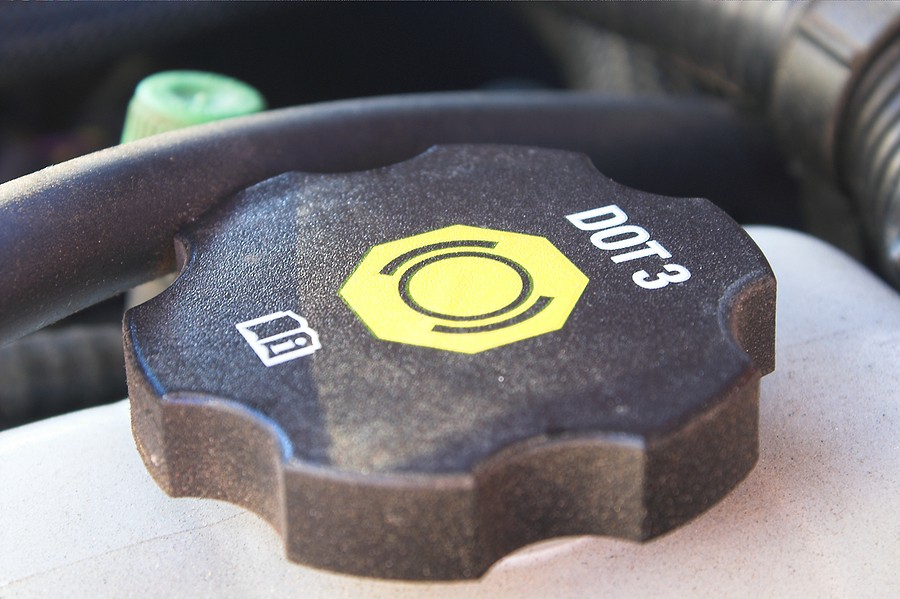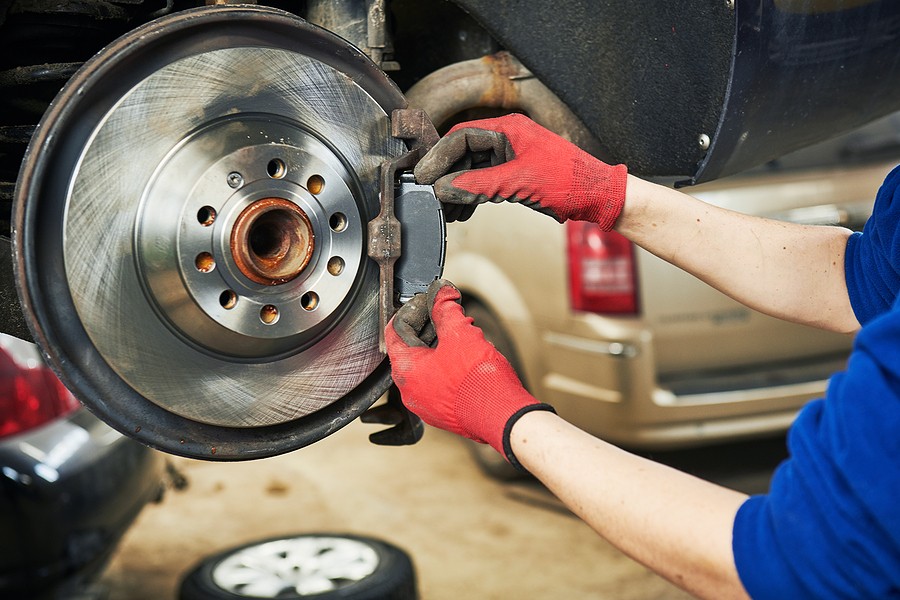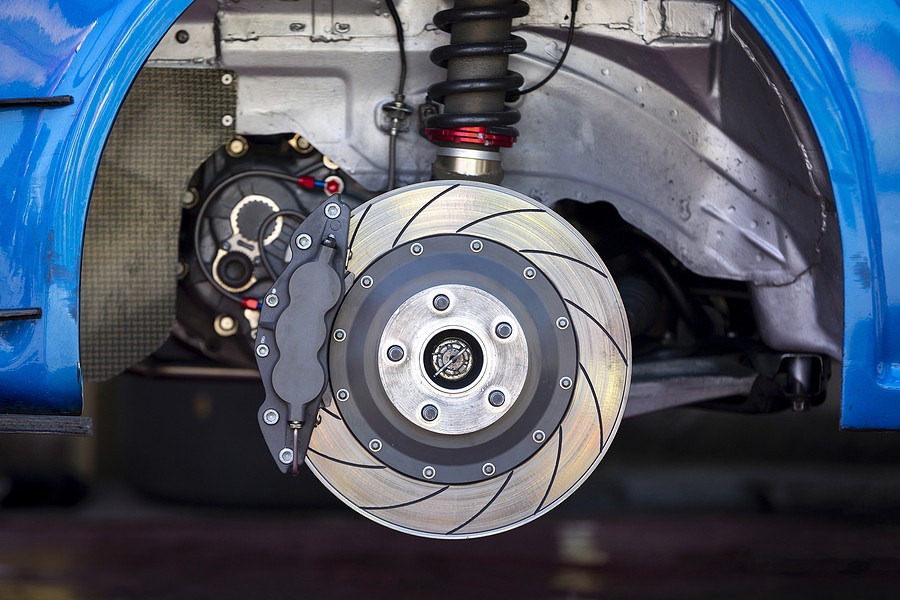The most common 2017 Chevrolet Silverado brake system malfunction include:
- Brake pad wear and tear
- Wrapped or damaged rotors
- Brake fluid leaks
- Faulty brake booster
When you're driving and enjoying your 2017 Chevrolet Silverado, the last thing you want out worry about and focus on is a braking system failing. Unfortunately, it's like any other system and is expected to feel it for some time.
While the 2017 Chevrolet Silverado has many great features, there have been some race concerns about the braking system malfunction that many car owners reported over the years.
Understanding the common 2017 Chevrolet Silverado brake system malfunctions helps you identify the problem as early as possible and avoid dealing with safety issues that could cost you your life.
This article provides detailed guidance to help you understand the most common 2017 Chevrolet Silverado brake system issues. It provides additional tips and tricks to help you avoid problems and extend the lifetime of your vehicle's braking system.
The 2017 Chevrolet Silverado brake system
Before we dive into the details about the 2017 Chevrolet Silverado brake system malfunctions, it is critical for you as a reader to understand the main components of this system and what's so special in the 2017 model that could go wrong within the rigging system components.
The Silverado generally has a unique braking system with several important parts, including the brake pedals, the master cylinder, the hydraulic lines, the brake boosters, the pads, the rotors, and the calipers.
In addition to the typical braking system components that you'll see in most Silverado vehicles, you'll notice that the 2017 model sometimes comes with a more advanced system called the antilock brake system. With this advanced system, drivers can control the drive and braking properly to stay as safe as possible.
Like any other vehicle, every component within the braking system plays a significant role. If it's not functioning properly, it can easily do significant problems in your vehicle that might impact your safety and other people driving around you.

Common 2017 Chevrolet Silverado brake system issues
Although the 2017 Chevrolet Silverado comes with a lot of features that extracted tons of customers over the years, there are some common issues about the braking system that are raised in a lot of online forums, including the following:
· Brake pad wear and tear
One of the most commonly reported issues about the 2017 Chevrolet Silverado brake system is that we're in a tear in the brake pads. This is a very common problem in most vehicles, but it's been reported frequently about this car and hitting that the brake pads might wear out prematurely.
When you use the brake pads continuously, a lot of friction happens between the brake pad and the surrounding components. When this happens, it leads to thinning of the brake pad, which makes the braking action ineffective, which can lead to squealing noises but eventually can prevent the driver from stopping the vehicle when needed.
· Wrapped or damaged rotors
In addition to the reported problems with the brake pads in the 2017 Chevrolet Silverado breaks system, some other customers indicated a continuous issue related to their routers.
If you took care of the brake pads early, you would not necessarily have problems getting to the rotors; still, in some situations, the continuous extreme heat that the rotors are experiencing might lead to damaging them prematurely.
The good news is that when the rotors are about to get damaged, you'll start noticing other symptoms that could help you pinpoint an issue in your vehicle; you must never ignore these symptoms because they could lead to significant damage that will cost you thousands of dollars in repair.
· Brake fluid leaks
In some reported complaints about the 2017 Chevrolet Silverado, some people mentioned a very severe brake fluid leak that can lead to a significantly dangerous situation that impacts your safety.

Tips and tricks to extend the lifetime of your 2017 Chevrolet Silverado brake system
Since it's been a common issue about the 2017 Chevrolet Silverado braking system malfunctions, it is critical for you, as a current car owner, to learn how to expand your brake system's lifetime as much as possible.
The list below provides you with some tips and tricks provided by automotive experts to help you avoid the 2017 Chevrolet Silverado brake system malfunctions as much as possible and also expand its lifetime:
· Regular brake inspections
The first and most critical tip you could implement to avoid reducing the lifetime of your 2017 Chevrolet Silverado braking system is to check on the brakes continuously. You can look at the brakes and see if the pads are worn out or if any sign indicates a minor issue.
You can also consult your mechanic and see if the brakes are due for any types of repairs that you're missing and confirm this with your vehicle owner's manual. Once you figure out that you're due for any maintenance, immediately implement it to avoid dealing with all these potential malfunctions.
· Brake fluid checks
Another important thing to do is to check on the brake fluid. A lot of times, people might experience some minor leaks that could evolve in their braking system, and once it gets major, it leads to severe issues where you can't control your vehicle, and you won't be able to slow it down when needed.
If you cannot determine whether you have break leaks, your mechanic can help you figure that out. You can monitor the brake fluids level and see if it's reduced over time because it could indicate an internal or minor external leak.
· Gentle braking
Your driving habits significantly affect how long your braking system lives in your 2017 Chevrolet Silverado. Therefore, you must break gently and avoid hitting and hammering the brakes to get your vehicle to stop. Plan your stops and monitor the road so you don't need to deal with the situation unless necessary.
· Avoiding overloading
Your 2017 Chevrolet Silverado is designed to withstand a specific load. By adding more loads on the vehicle, thinking that it's going to send it, you're impacting the overall system, including shortening the lifetime of your braking system.
· Choosing high-quality parts
It's also recommended that you choose high-quality parts whenever you do any bricks or pairs for your 2017 Chevrolet Silverado. This helps ensure that those parts are going to last longer and they're not going to fail immediately after experiencing A challenging situation.
· Never underestimate minor symptoms
Finally, automotive experts typically recommend keeping an eye and ear on any potential minor symptom in your vehicle. By detecting these symptoms as early as possible, there is a very high chance that you can fix the vehicle without needing to spend thousands of dollars on repair, so you don't need to replace major components in your braking system.
It's not only about saving monies but also about protecting your safety because once you detect minor problems in your braking system, you avoid dealing with risky situations that could cost you your life if your system does not engage properly when needed.
For example, if you notice that you hear some squeaking or squealing noises whenever you engage the brakes, it could indicate that some of the minor components are failing, which could evolve very fast and lead to severe damage.
Also, you might start to notice some weird rubber-burning smell every time you use the brake pads, and that could indicate that the pads are overheated and something external, causing them to fail prematurely.

2017 Chevrolet Silverado brake system malfunctions: Final Thoughts
Regardless of the amazing features you will enjoy when cruising with your 2017 Chevrolet Silverado, there's been some reported issues with its braking system failing.
This article highlighted the most common failures you might experience when driving your 2017 Chevrolet Silverado. These include failing brake pads, damaged rotors, and additional issues related to brake fluid leaks.
You must follow up with your Regular maintenance and keep an eye on the braking system behavior and any other weird noises you might experience when engaging the braking system.
By identifying any minor problems as fast as possible and as early as possible, there's a high chance that you can fix the braking system without spending thousands of dollars on repair and without dealing with some safety concerns.
If you're interested in similar posts, we highly encourage you to visit our blog by clicking here!



